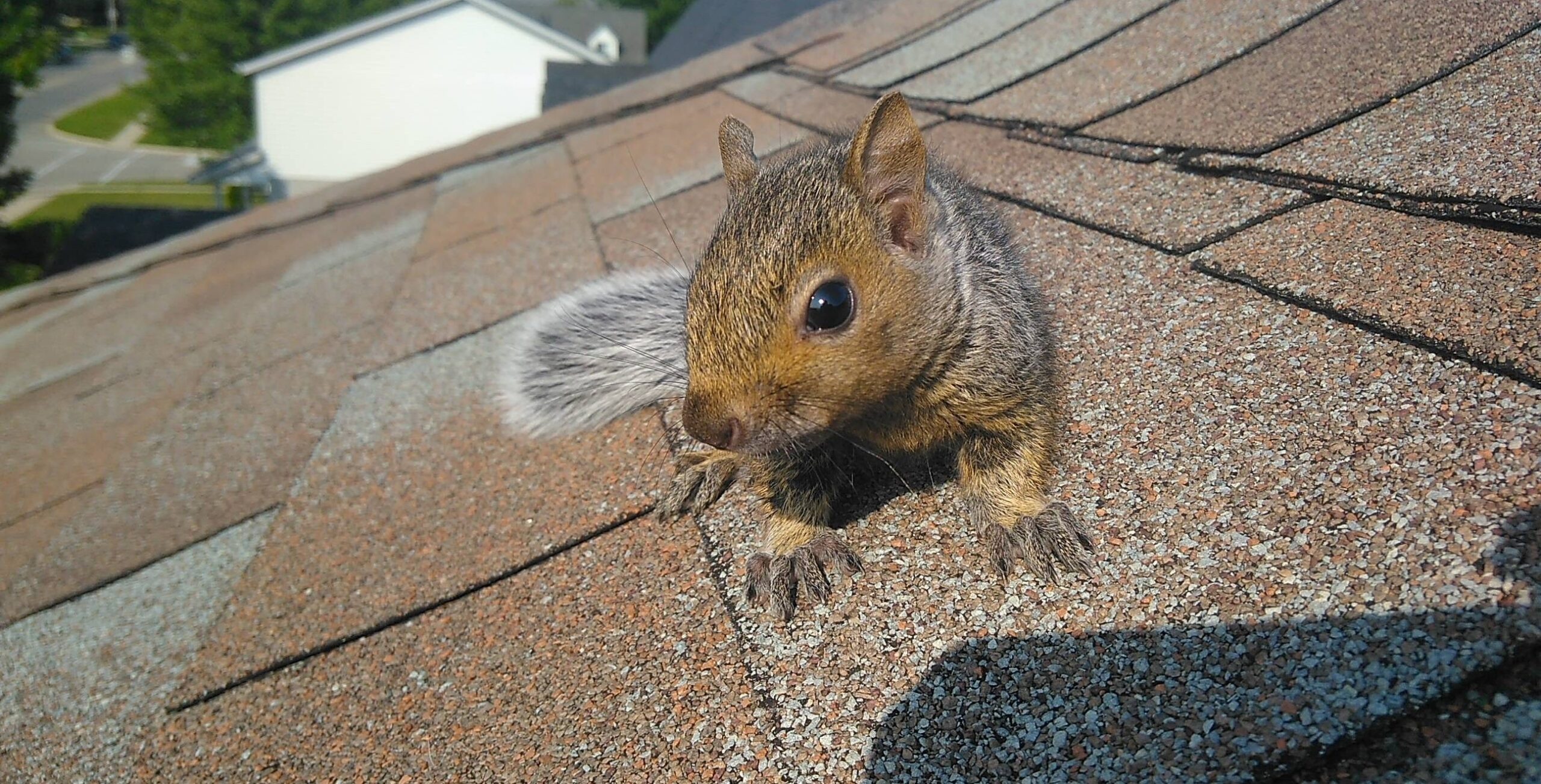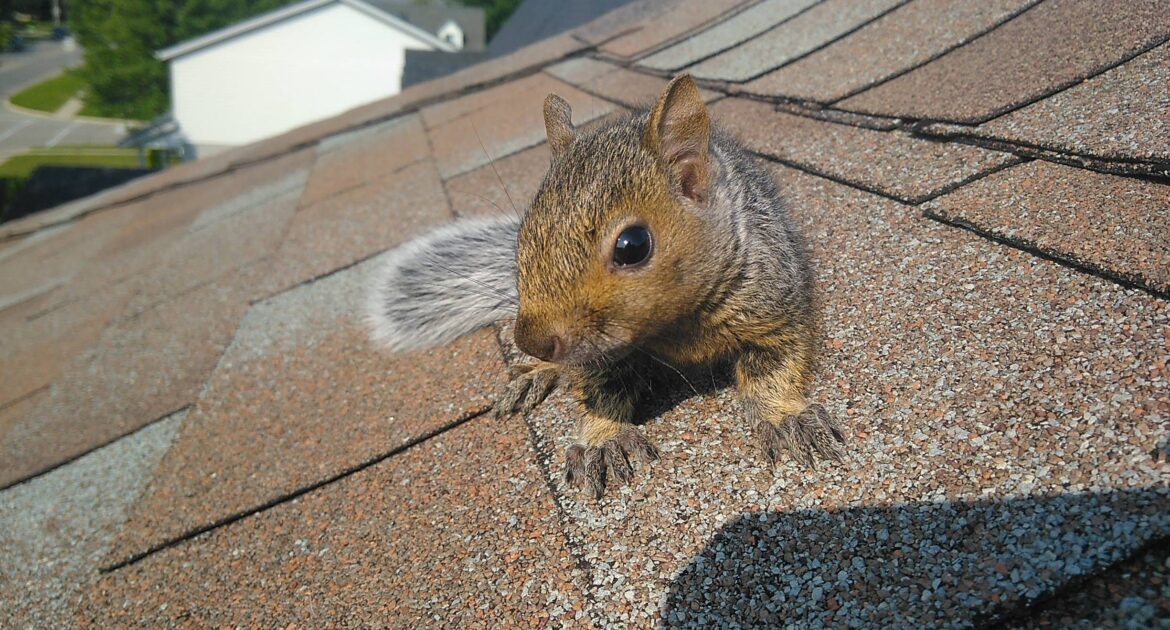You step outside and spot a squirrel darting across your yard, a nut clutched tightly in its tiny paws. It’s easy to think that nuts are all these bushy-tailed animals eat, but the truth might surprise you.
Do squirrels eat only nuts? Not at all! The squirrel diet in Vaughan is much more diverse than you’d expect. From fruits and vegetables to even insects, squirrels are resourceful eaters who adapt to what’s available.
If you’re noticing squirrels raiding your garden or even trying to sneak into your home, it’s time to take action. At Skedaddle Humane Wildlife Control in Vaughan, we understand how these animals behave and why they’re drawn to your property.
In this post, we’ll explore what squirrels eat, why they might be targeting your yard, and how our Vaughan squirrel removal services can help protect your home.
Let’s dive into the fascinating world of squirrels and their surprising eating habits!
What Makes Up a Squirrel’s Daily Menu?
Squirrels are opportunistic eaters who adjust their diet based on what’s available throughout the year. You’ve probably seen them burying nuts in your yard during fall, but that’s just one part of their eating routine.
Plant-Based Foods Squirrels Love
The majority of a squirrel’s diet comes from plants. Here are some of their favourite plant foods:
- Tree Nuts: Acorns, walnuts, hickory nuts, and pecans
- Seeds: Sunflower seeds, pumpkin seeds, and pine nuts
- Fruits: Apples, berries, grapes, and cherries
- Vegetables: Corn, carrots, sweet potatoes, and leafy greens
- Tree parts: Bark, twigs, and tree buds
- Mushrooms and Fungi: Various types found in wooded areas
Animal Protein in Their Diet
You might be shocked to know that squirrels also eat meat when they can find it. This protein helps them stay strong and healthy, especially during breeding season. Their animal food choices include:
- Insects: Beetles, moths, caterpillars, and ants
- Bird Eggs: When they can reach nests
- Small Birds: Occasionally, if they can catch them
- Fish: Sometimes from shallow water sources
- Carrion: Dead animals they find
How Seasons Change What Squirrels Eat
The squirrel diet in Vaughan changes dramatically throughout the year. These smart animals know how to adapt their eating habits to survive different weather conditions and food availability.
Spring Feeding Habits
During spring, squirrels focus on fresh growth and new food sources. They love eating:
- Tree buds and flowers
- Fresh shoots and leaves
- Early berries and fruits
- Insects that become active
- Bird eggs (unfortunately for bird lovers)
Summer Food Choices
Summer brings abundance for squirrels in Vaughan. They take advantage of:
- Ripe fruits from trees and gardens
- Vegetables from home gardens
- More insects and larvae
- Seeds from flowers and plants
- Fresh nuts that are beginning to form
Fall Preparation Mode
Fall is when squirrels become most active and visible. They’re busy preparing for winter by:
- Collecting and burying nuts
- Eating extra food to build fat reserves
- Gathering seeds from various plants
- Taking advantage of late-season fruits
- Storing food in multiple hiding spots
Winter Survival Strategy
Winter forces squirrels to rely on their stored food and whatever they can find:
- Cached nuts from fall collecting
- Tree bark and twigs
- Remaining seeds on plants
- Any available bird feeder contents
- Food scraps from human sources
Why Squirrels Raid Your Property
Now that you know squirrels eat much more than nuts, it’s easier to see why they’re attracted to residential areas in Vaughan. Your property might offer a buffet of tasty options that draw these hungry animals.
Garden Attractions
Your garden is like a grocery store for squirrels. They’re drawn to:
- Fruit trees and berry bushes
- Vegetable gardens with corn, tomatoes, and squash
- Flower seeds, especially sunflowers
- Compost piles with food scraps
- Bulbs planted in fall (tulips are especially tasty)
Bird Feeders and Pet Food
Squirrels are famous for raiding bird feeders, but they also target:
- Nyjer seeds, sunflower seeds, and mixed birdseed
- Suet cakes meant for woodpeckers
- Pet food left outside
- Fallen seeds under feeders
- Water sources like bird baths
Shelter and Nesting Sites
Beyond food, squirrels look for safe places to live and raise their babies:
- Attics with easy access points
- Wall spaces between floors
- Garage storage areas
- Sheds and outbuildings
- Dense shrubs and trees near the house
Signs Squirrels Are Living in Your Home
If you suspect squirrels have moved beyond just visiting your yard to actually living in your house, watch for these warning signs:
- Scratching sounds in walls or ceiling, especially early morning and evening
- Chewed holes in soffits, fascia boards, or roof areas
- Droppings in attic spaces or around entry points
- Nesting materials like shredded insulation or leaves
- Damaged bird feeders or garden plants
- Acorn shells and nut pieces in unusual places
The Problems Squirrels Can Cause
Squirrels might look cute and harmless, but when they decide to move into your home, they can cause some serious problems. These little animals are surprisingly destructive and can create issues that affect your house, your health, and even your yard.
Structural Damage
One of the biggest concerns is structural damage. Squirrels love to chew, and they don’t stop at nuts. They can gnaw on electrical wires, which is not only annoying but also a major fire hazard. They might tear up insulation in your attic, leaving your home less energy-efficient and more expensive to heat or cool. Squirrels can also chew holes in your roof, vents, or screens, creating easy entry points for other animals or pests.
Health Concerns
Squirrels can also bring health concerns into your home. Their droppings can carry diseases that are harmful to humans. On top of that, squirrels often bring parasites like fleas and ticks with them, which can spread to your pets or family members. If they nest in your attic, their waste can contaminate insulation, leaving behind unpleasant odours and potential health risks.
Property Damage
Your yard isn’t safe from squirrel damage either. These animals can destroy your garden by eating plants, fruits, and vegetables. They’re also known for raiding bird feeders, scattering seeds everywhere, and even digging up your lawn to bury their food. If you’ve ever found garbage strewn across your yard, a squirrel might be the culprit.
While squirrels might seem like harmless visitors, the damage they cause can quickly add up.
Professional Help for Squirrel Problems
When squirrels become a problem on your property, it’s important to get professional help rather than trying to handle the situation yourself. Vaughan squirrel removal requires expertise and proper equipment to be done safely and effectively.
Our professional wildlife control services understand squirrel behaviour and know how to solve problems without harming the animals. They can identify entry points, assess damage, and create a plan to keep squirrels from returning.
The key to successful squirrel removal is using humane methods that allow animals to leave but prevent them from coming back. This approach is better for both the squirrels and your family’s safety.
Get Professional Squirrel Control in Vaughan
Understanding that the squirrel diet in Vaughan goes far beyond nuts helps explain why these persistent animals keep coming back to your property. From your garden vegetables to your warm attic, squirrels see your home as the perfect place to find food and shelter.
Do squirrels eat only nuts? Now you know they don’t, and this knowledge can help you better understand why professional Vaughan squirrel removal services are so important.
At Skedaddle Humane Wildlife Control in Vaughan, we use one-way doors that allow squirrels to leave your home but prevent them from getting back inside. Our humane approach solves your squirrel problem while keeping these animals safe.
Don’t let squirrels turn your home into their personal restaurant and hotel. Contact us today to request an estimate and learn how we can help protect your property from unwanted wildlife visitors.




